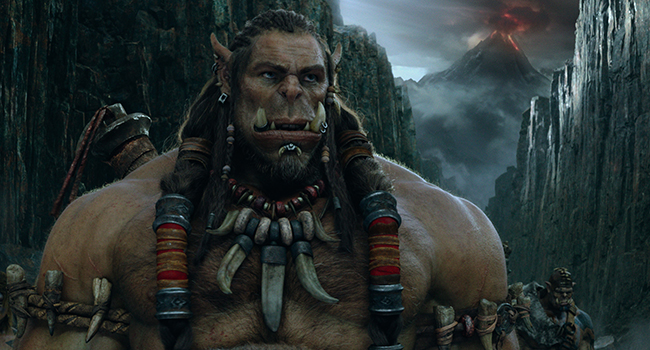You know how some movies open with a massive scene that explodes all over the screen, not letting up until the title appears? Indiana Jones has its boulder roll; The Dark Knight its bank heist. In both cases, a low-key scene meant for getting to know characters follows.
Warcraft opens with a huge bang of an introduction before the title slams onto the screen. Then the next scene is mayhem that doesn’t let up. Then the next scene after that is mayhem that doesn’t let up. Then there’s two hours’ worth of that, and then it ends with more mayhem that doesn’t let up.
And that’s Warcraft.
Duncan Jones — who before this film didn’t have one bad movie under his directorial belt — has said that he wants his Warcraft series to rival the Lord of the Rings films. Jones is only one movie in so far, and based on how well it’s doing overseas it’ll probably warrant a couple sequels. But if this video game adaption is any indication, Peter Jackson’s legendary trilogy has nothing to worry about, as the Lord of the Rings movies already have one major advantage:
Downtime.
I tried my hardest to enjoy Warcraft. Jones’ last two films—Moon and Source Code—are landmarks of sci-fi filmmaking that I rather loved. The director is David Bowie’s son, and his previous works proved that artistic talent is genetic. But it’s hard to enjoy a movie when it never stops to think, make you care, or make sense.
I have never experienced any of the Warcraft games or the online world, and that became a problem. I’m sure that this adaption will fare far better with fans of the game, but for any other moviegoers Warcraft will be a messy spectacle. The narrative simultaneously tries to cram countless hours of long-form video game storytelling into two hours, and to explain every detail of the world to viewers unfamiliar with the universe. The result is a story that is, from first bombastic scene to last, irrevocably crowded.
The first third of the movie is burdened by over-exposition. The second act forwards the established plot, but for audiences that haven’t yet visited Azeroth, we weren’t given enough downtime in the first act to piece characters together into people. Take one second to search for character development during the proceedings, and you’ll miss six key plot points. It’s exhausting. By the time the third act rolls around, it’s sort of like watching the pieces of a puzzle come together, but one that you were only solving begrudgingly.
And don’t assume you’ve escaped exposition: the third act is over-explaining all over again, this time to set up the sequel. Warcraft doesn’t really have an ending, just a laughably abrupt stopping point where the sequel can suddenly pick up.
You might be surprised, after all that, that I don’t consider the movie terrible. Warcraft’s genre is unmistakably high fantasy, and the movie’s technical team creates a dazzling world. The cinematographer behind The Great Gatsby — a lover of sweeping shots across colorful locales, apparently — helps the digital world appear realistic and grandiose. The visual effects, courtesy of Industrial Light and Magic, are a triumph. No suspension of disbelief was required to believe that the orcs were living, breathing creatures: every non-human character looks natural and carries tangible weight.
This, in turn, benefits the numerous scenes of war and chaos. Watching the orcs and humans clash is exciting regardless of convoluted story. The thundering orcs are a sight (and sound!) to behold in combat, and the battles are electrifying combinations of human ingenuity and brute force begotten of digital witchcraft.
The writing is… serviceable. Screenwriter Charles Leavitt (who should’ve left it! Ha) has a history of using dialogue solely to explain narrative rather than craft compelling characters (see In the Heart of the Sea.) The dialogue is never stilted, but it also never helps us get to know the inhabitants of Azeroth.
Which is a shame, as many of the characters have great arcs to work with. Paula Patton in particular shines as half-human half-orc Garona, whose allegiances are confused but emotionally driven. Ben Foster certainly has fun chewing his scenes as the warlock Medivh. I don’t remember the rest of the characters’ names.
This is because no matter how strong the characters could have been, Warcraft is too busy to notice them. Duncan Jones poured passion into Warcraft, but too much into its fan service world and too little into its people.
★★ (2 out of 5)




